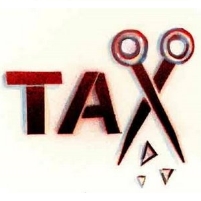What’s in the Stimulus Bill?: Tax Cuts
Sunday, February 15, 2009

To hear its critics talk about it, you would think that the just-passed stimulus bill (aka the “American Recovery and Reinvestment Act of 2009”) was a wild-eyed liberal trick full of wasteful spending. In fact, the $789 billion bill includes $280 billion in tax cuts and incentives that would probably please most Republicans if not for the fact that it was the Democrats who came up with them.
The biggest chunk, $116 billion, comes from President Obama’s “Making Work Pay” Tax Credit. Individuals earning $75,000 or less and married couples earning $150,000 or less will receive a 6.2% tax credit (up to $400 and $800 respectively) that can be claimed either as a reduction in the amount withheld from paychecks or as a credit on their tax returns. Beginning in June, most workers will see a $13 a week increase in their take-home pay.
In second place, at $69.8 billion, is the Extension of the Alternative Minimum Tax Relief for 2009. The Alternative Minimum Tax was originally passed in 1969 to force extremely wealthy families to pay taxes. However, over the years, inflation caused less wealthy families to be swept into the program. The new fix will mostly apply to 24 million upper middle class families and will save them an average of $2,300 for the year.
Currently, families with children under age 17 can claim a Child Tax Credit of up to $1,000 per child. If the credit is more than the family owes in taxes, the difference can be issued as a refund known as the Additional Child Tax Credit. According to the current system, eligibility applies to income above $8,500. The stimulus plan lowers the floor for eligibility to $3,000 for 2009 and 2010, allowing funds for poorer families that will total $14.8 billion.
At a cost of $14.2 billion, there will be a one-time payment of $250 to recipients of Social Security, Supplemental Security Income (SSI), Railroad Retirement and Veterans Disability Compensation Benefits.
The “American Opportunity” Education Tax Credit is a new program that gives assistance to the families of college students by providing a tax credit of up to $2,500 for tuition and related expenses, such as books. Individuals are eligible if their income is $80,000 or less and married couples if their income is $160,000 or less. Savings will total $13.9 billion
The stimulus bill will extend for three years tax credits for wind energy facilities, biomass facilities and other producers of renewable energy, including geothermal, hydropower and waste-to-energy. Tax savings: $13.1 billion.
The Stimulus Plan: The Tax Cuts (by Michael Grabell and Christopher Weaver, ProPublica)
Tax, Unemployment, Health, State Fiscal relief, and Other Provisions (American Recovery and Reinvestment Act of 2009” (PDF)
Stimulus Bill Offers Workers, Businesses Tax Cuts (by Stephen Ohlenmacher, Associated Press)
- Top Stories
- Unusual News
- Where is the Money Going?
- Controversies
- U.S. and the World
- Appointments and Resignations
- Latest News
- Trump to Stop Deportations If…
- Trump Denounces World Series
- What If China Invaded the United States?
- Donald Trump Has a Mental Health Problem and It Has a Name
- Trump Goes on Renaming Frenzy






Comments